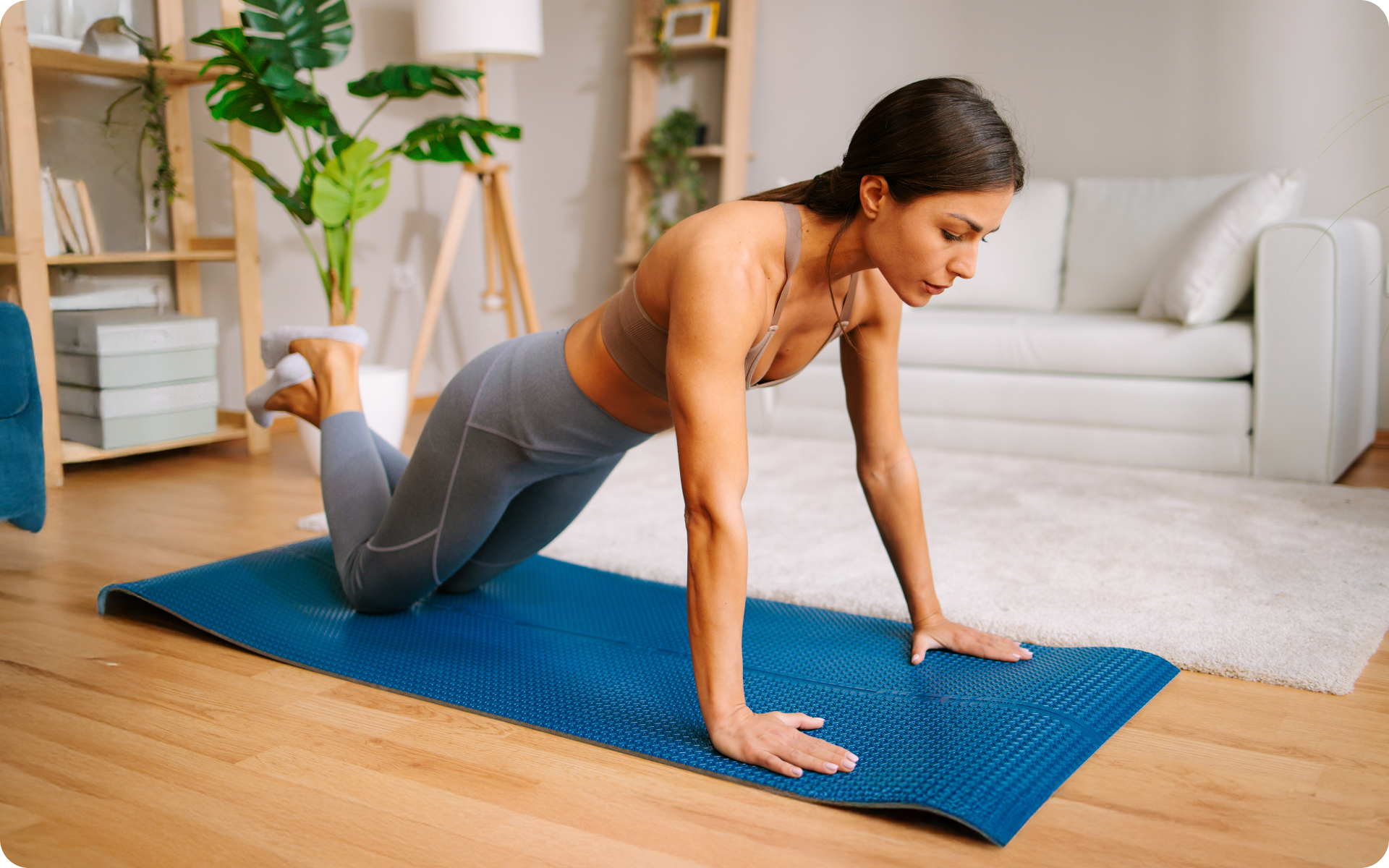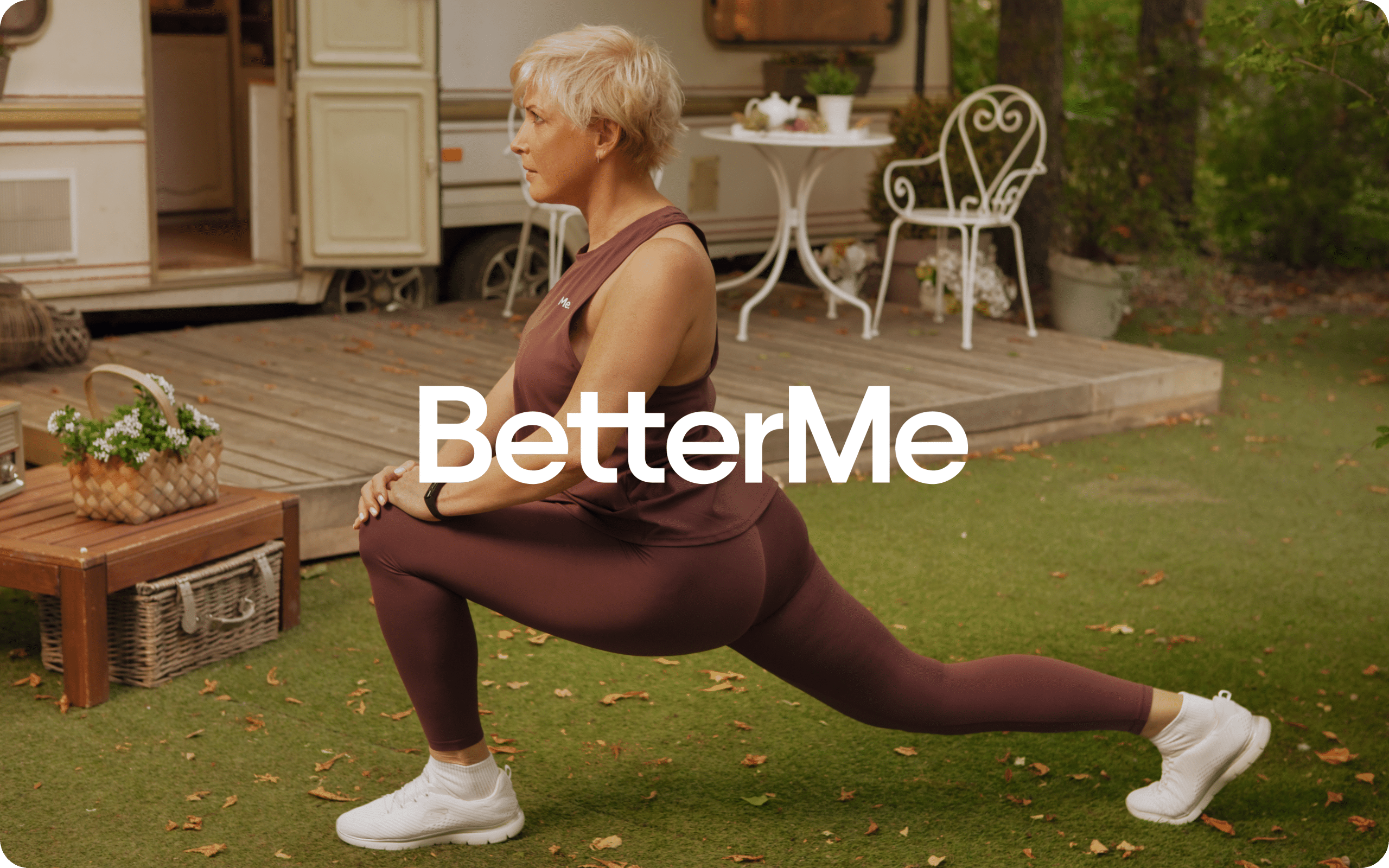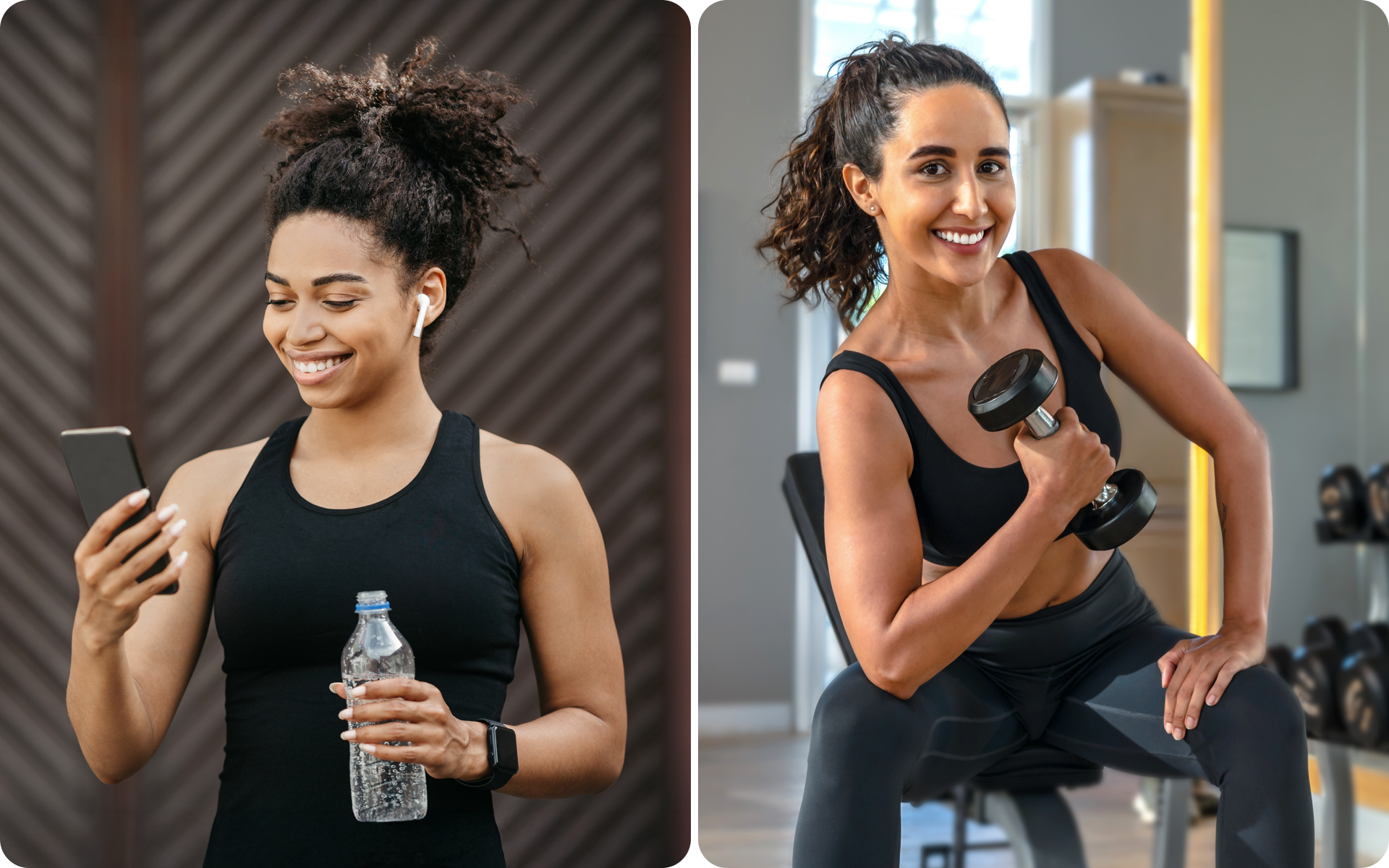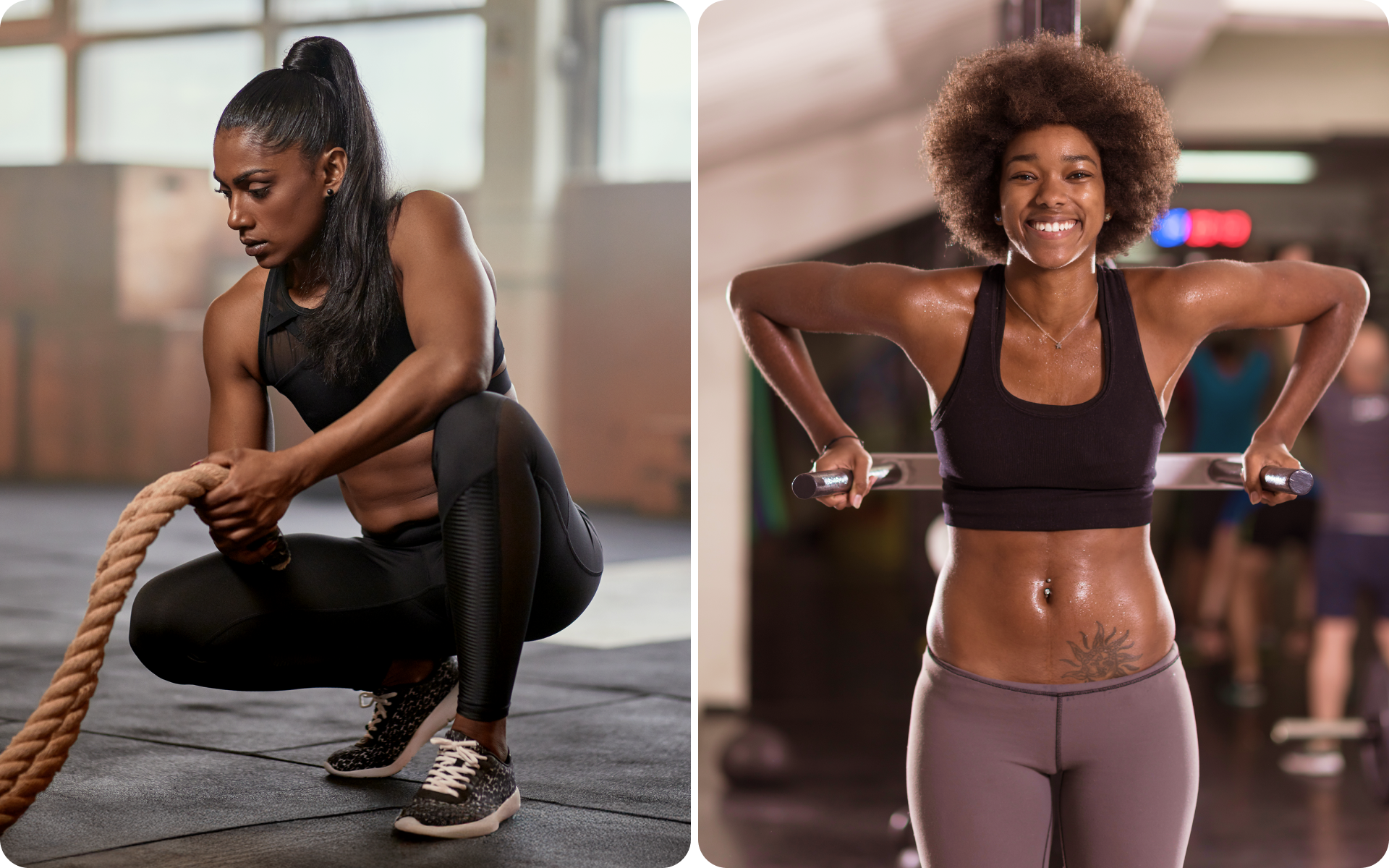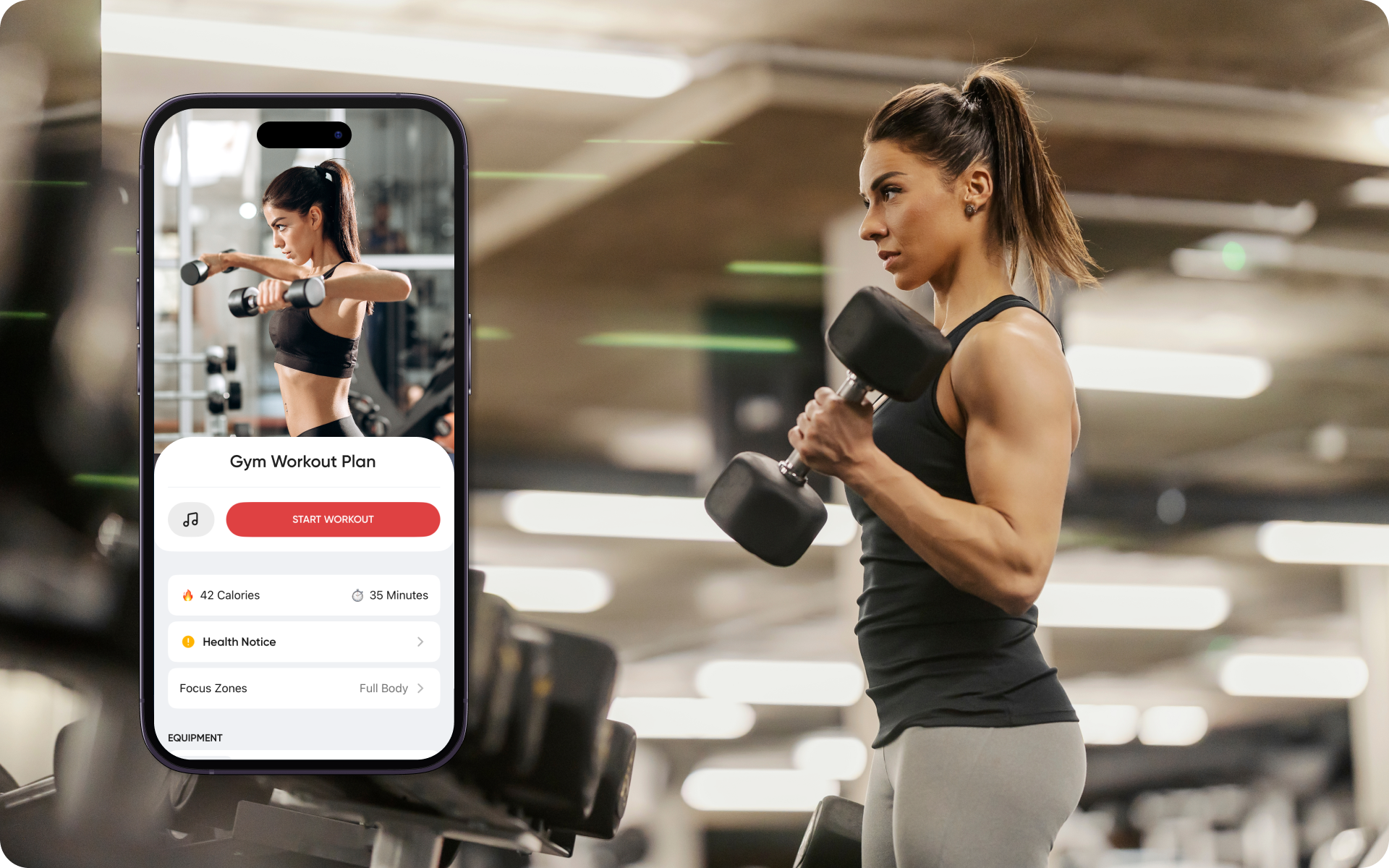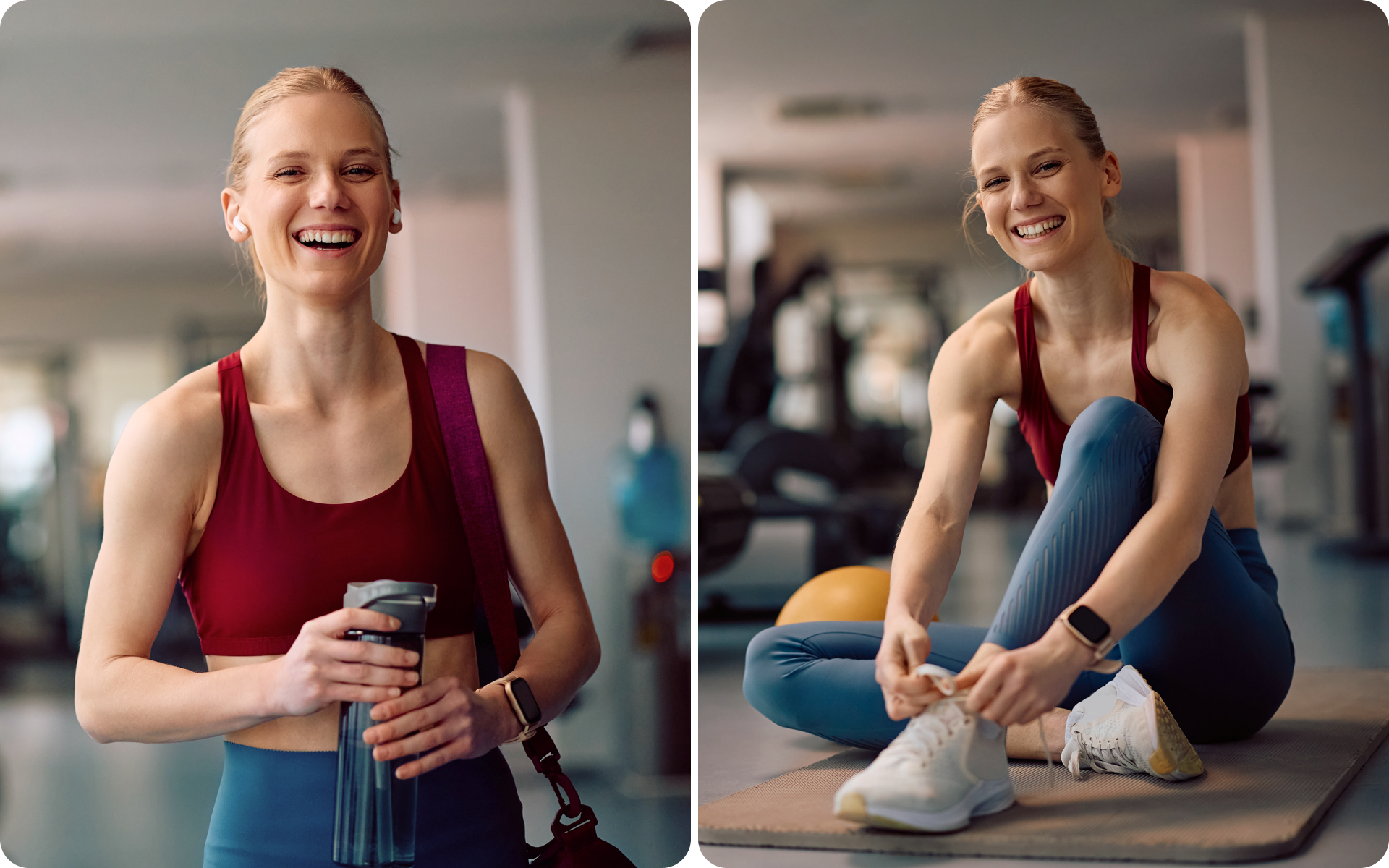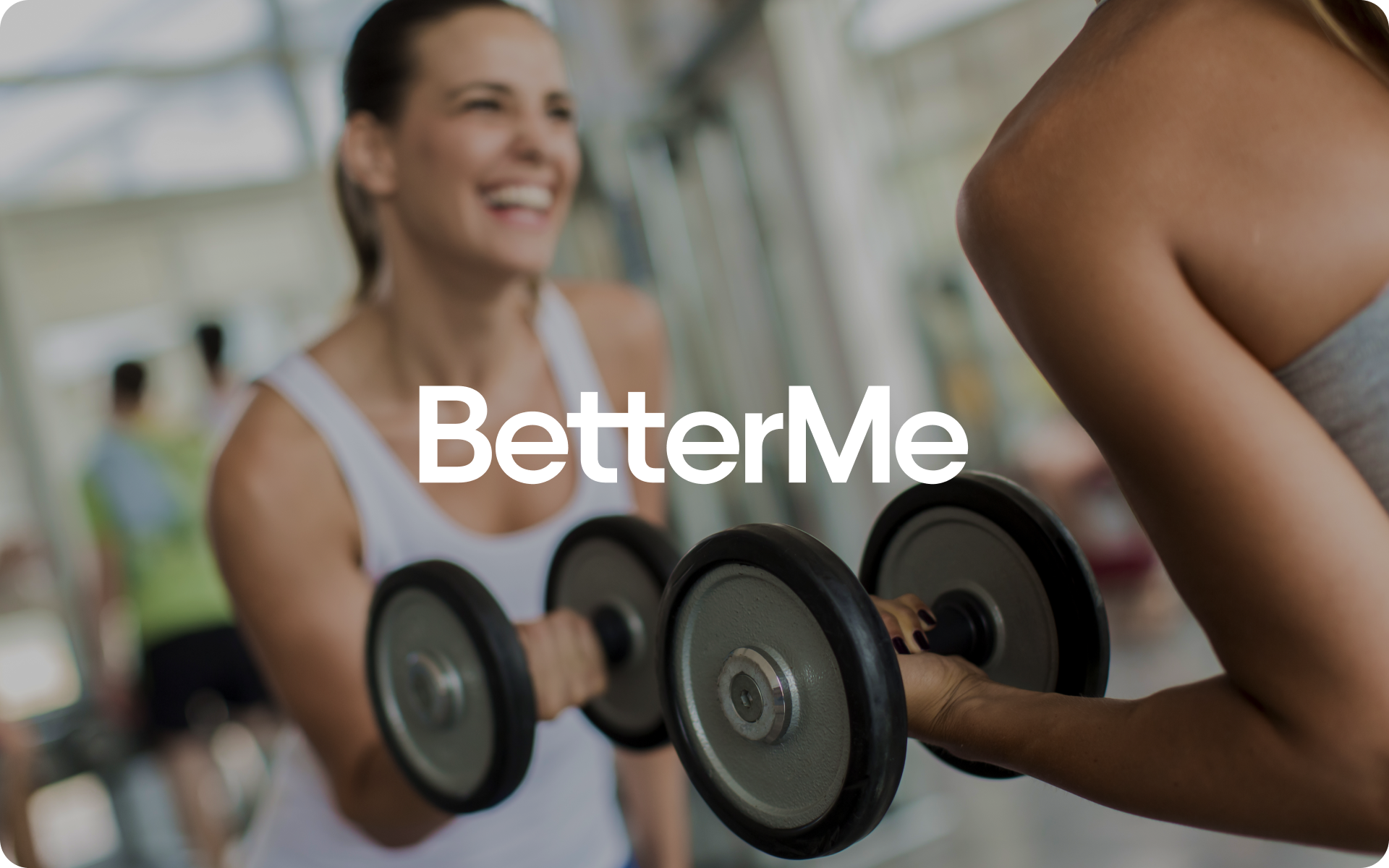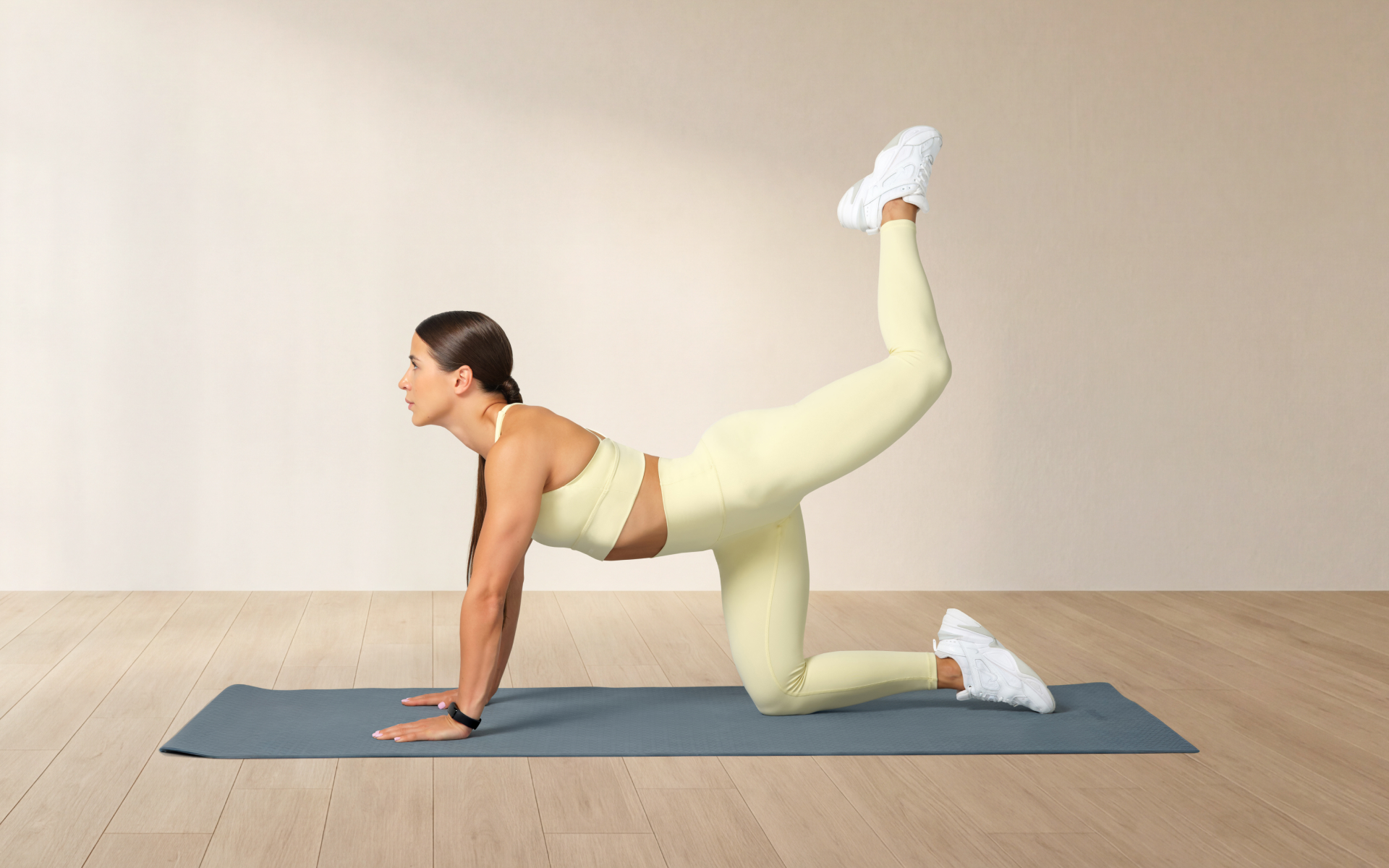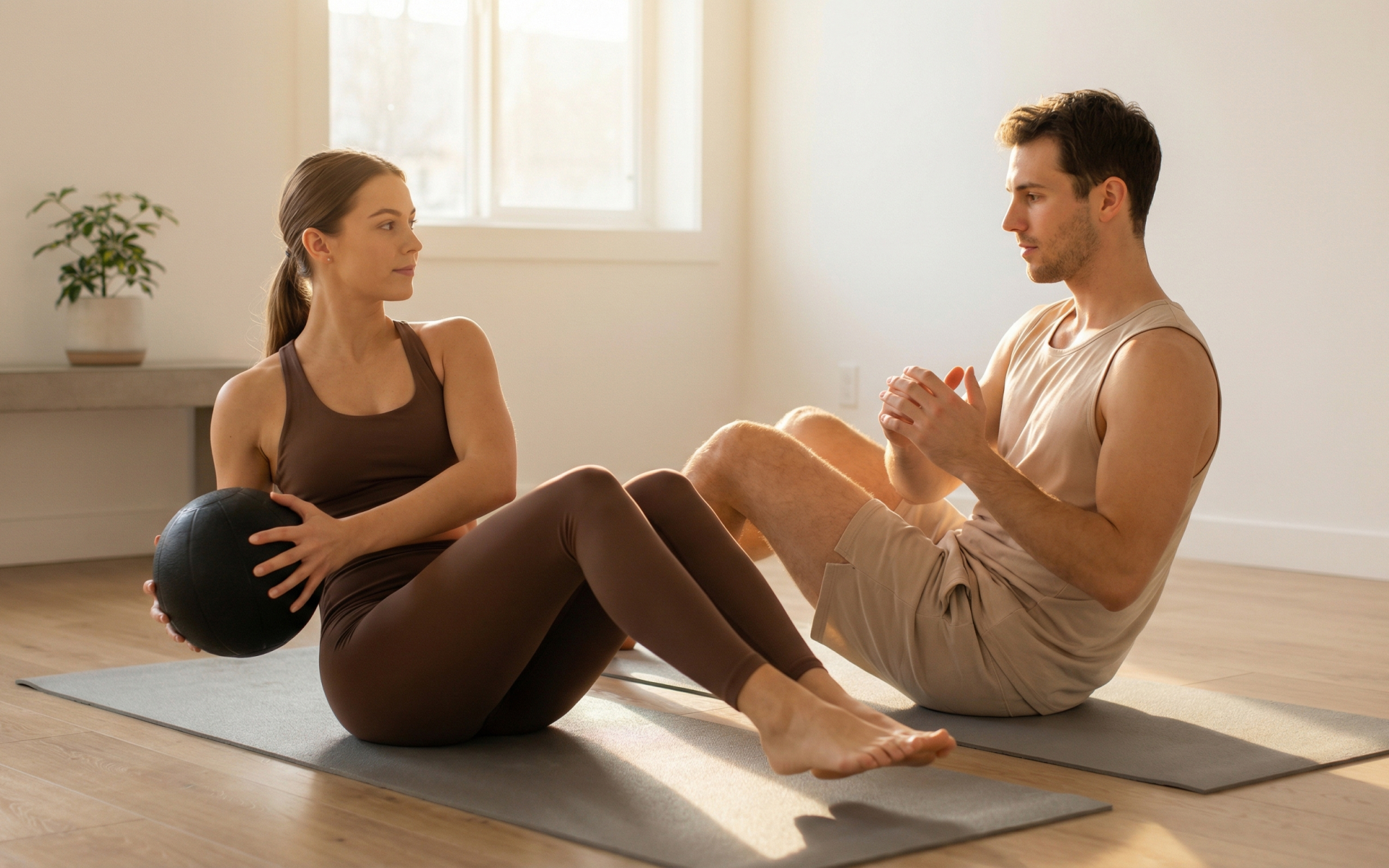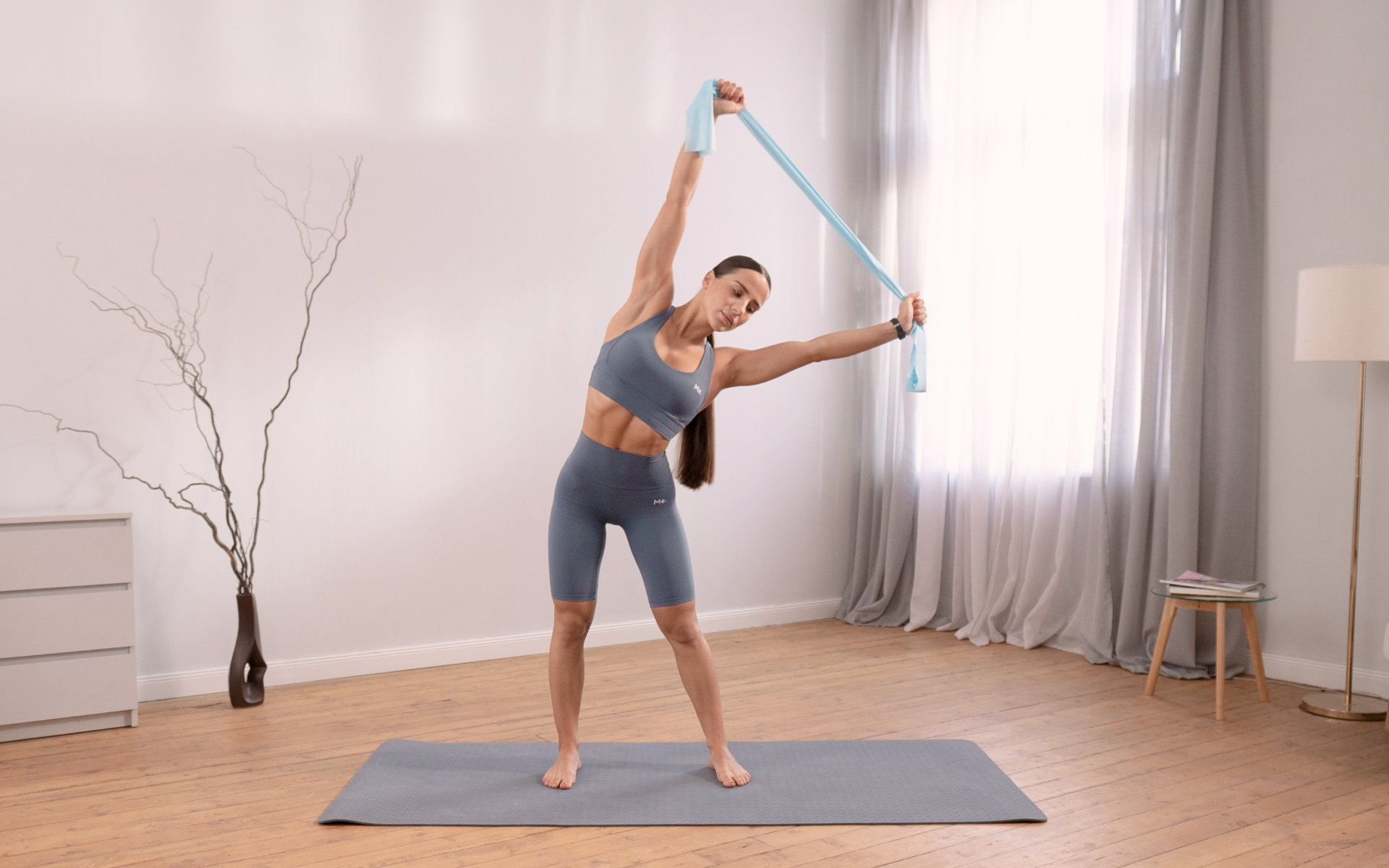According to fitness guidelines from experts, you need at least two days a week of strength training. Research suggests that people who engage in regular strength training have a far lower risk of injury and more muscle mass than those who neglect it (6).
There are a few different ways to strength train, but we will focus on these two: with weights or without them. You may be wondering whether lifting weights is more effective or if bodyweight exercises can provide the same benefits.
Well, the answer isn’t straightforward. Each method has its advantages and drawbacks.
Here’s what you need to know to decide which approach may be better for you.
What Is Bodyweight Training?
Bodyweight training is a type of strength training that uses your body weight as resistance. It involves different exercises including push-ups, pull-ups, squats, lunges, and planks.
The great thing about bodyweight training is you don’t need any equipment. You can do these exercises anywhere, at any time. They also allow for full range of motion and help improve balance and stability (8).
Although you may think it’s easier to start with bodyweight exercises, they can actually be quite challenging. As you become stronger and more experienced, the workouts can become increasingly difficult by adding variations or increasing the number of repetitions.
What Is Weight Training?
Weight training involves using various types of equipment, such as dumbbells, barbells, or resistance machines, to build strength and muscle mass. It typically includes movements such as bicep curls, chest presses, and deadlifts.
One of the main advantages of weight training is you can easily adjust the amount of weight you lift, which makes it easier to track your progress over time. It also allows for targeted muscle isolation and can help build bulk and increase overall muscular strength (3).
However, weight training requires access to a gym or specialized equipment, which may not be easily accessible for everyone. Both require proper form and technique to prevent injury, but weights can be challenging for beginners as they need to control an external weight throughout the movement, rather than just focusing on the movement itself.
Bodyweight Vs Weights: Which Is Better for You?
The truth is that both bodyweight exercises and weight training have their own benefits and limitations. The best approach for you will depend on a few factors, such as:
- Your fitness goals
- How much experience you have with strength training
- Your access to equipment and facilities
- Your access to proper guidance and instruction
- Any physical limitations or injuries
We’ll review each of these factors to help you determine which method may be better for you.
Fitness Goals
One of the first considerations when choosing between bodyweight exercises or weight training is your fitness goals. Whether your aim is to build muscle mass, increase strength, improve athletic performance, or simply stay fit, your objective will heavily influence which method is more suitable for you.
Muscle Mass
If your primary goal is to build muscle mass, weight training is typically more effective. Using weights allows you to isolate specific muscle groups and can make it easier to progressively overload them, which is essential for muscle hypertrophy. With weight training, you can continually increase the resistance, which pushes your muscles to grow stronger and larger over time (3).
Overall Strength and Stability
However, if you’re looking to enhance overall strength and stability, bodyweight exercises may be more beneficial. These exercises engage multiple muscle groups simultaneously and promote functional fitness. They help improve balance, coordination, and core stability—essential qualities for daily activities and sports performance (8).
Endurance and Stamina
For those who are aiming to increase endurance and stamina, bodyweight exercises offer a versatile and accessible method of training. High-repetition workouts, such as circuit training, can be done anywhere and don’t require equipment. This makes it easier to maintain consistency and incorporates a cardio element that can boost your endurance levels (8).
Weight Loss
Weight loss is another common fitness goal, and both methods can be effective tools. Bodyweight exercises often involve compound movements that burn more calories, while weight training helps build muscle mass, which increases your basal metabolic rate (BMR). A higher BMR means you burn more calories, even when at rest. Combining both methods can provide a comprehensive approach to weight loss (1).
Here’s a quick guide to help you decide which method is better for specific fitness goals:
- Build Muscle Mass: Opt for weight training. Its ability to isolate muscle groups and progressively increase resistance is unrivaled.
- Improve Strength and Stability: Opt for bodyweight exercises. They engage multiple muscle groups and improve functional fitness.
- Increase Endurance: Bodyweight training is versatile, but weight training is great for it too. Both can incorporate high-rep circuits that can boost stamina over time.
- Weight Loss: A combination of both methods works best. Both forms of exercise will burn calories and can contribute to increased BMR.
- Stay Fit and Healthy: Both methods can be effective. Choose the one that best suits your lifestyle and preferences, ensuring consistency in your workouts.
We discuss fitness goals in more detail in our blog post, Should I Lose Weight Before Building Muscle?
Experience with Strength Training
Another factor to consider is your experience level with strength training. If you’re new to exercising or have never done any form of strength training before, bodyweight exercises may be a gentler starting point (2).
Bodyweight exercises rely on natural movements and only use the resistance of your own body weight, which makes them less intimidating for beginners. They also allow you to focus on proper form and technique without worrying about external weights (8).
However, weight training requires a certain level of experience and knowledge to prevent injury. If you’re new to weight training, it’s important to start with lighter weights and gradually increase the resistance as your strength improves. Learning proper form and technique is also essential for preventing injuries (3).
If you have some experience with strength training or are comfortable learning from instructional videos or books, weight training may be a more viable option for you.
Access to Equipment and Facilities
As previously mentioned, one of the main differences between bodyweight exercises and weight training is the need for equipment. Bodyweight exercises can be done anywhere without any equipment, while weight training requires access to a gym or specialized equipment.
If you have limited access to a gym or prefer to work out at home, bodyweight exercises may be the better option for you. You can easily create a routine using just your body weight and some basic equipment such as resistance bands.
However, if you have access to a well-equipped gym or prefer using weights for targeted muscle isolation, then weight training may be more suitable for you.
Proper Guidance and Instruction
Both bodyweight exercises and weight training require proper form and technique for maximum effectiveness and to prevent injury. However, learning the correct form can be challenging, particularly for beginners.
If you have access to a certified personal trainer or instructor who can guide you through your workouts and ensure proper form, either method could work for you.
However, if you’re on your own with limited knowledge of strength training, bodyweight exercises may be a safer option as they rely on more instinctive movements.
You may be interested in our previous blog post, How to Do Stomach Vacuums.
Bodyweight Vs Weights: Physical Limitations or Injuries
Finally, it’s essential to consider any physical limitations or injuries when choosing between bodyweight exercises and weight training. Certain exercises or equipment may not be suitable for individuals with previous injuries or physical limitations.
For example:
- Bodyweight exercises that place a lot of pressure on the wrists (such as push-ups) may not be suitable for individuals with wrist injuries or weakness.
- Weight training exercises such as deadlifts and squats require proper form and can put a significant strain on the back, which makes them unsuitable for those with lower-back issues.
If you have any pre-existing conditions or injuries, it’s important to consult a healthcare professional before you start any new exercise routine. They can provide guidance on which method is safer for your specific needs.
Check out our post, Pilates Wall Exercises, to find out about ways to build strength and stability while minimizing strain on the back.
FAQs
Can you build muscle with just bodyweight?
You can build muscle with just bodyweight exercises, particularly if you’re a beginner or have limited access to equipment. However, as you progress and gain strength, adding external weights may be necessary for continued muscle growth (5).
What is the only downside to bodyweight exercises?
The main downside to bodyweight exercises is the limited options for increasing resistance. As you become stronger, it can be challenging to continue progressing without external weights or specialized equipment.
Why is bodyweight harder than weights?
Bodyweight may feel harder than weights for some people as it requires more stabilization and engages multiple muscle groups at once. With weights, the resistance is more isolated to specific muscle groups, which can make it easier for some people to handle.
Is weight training better than bodyweight?
Neither method is inherently better than the other; it depends on individual goals, preferences, and access to equipment. Both methods can be effective for building strength, improving fitness, and achieving specific goals. It’s best to choose the one that best suits your lifestyle and consistently incorporate it into your routine.
Do you need rest days from a bodyweight workout?
Yes, rest days are essential for any workout routine, including bodyweight exercises. Your muscles need time to recover and grow stronger after being worked out. It’s recommended that you take at least one or two rest days per week, depending on your fitness level and intensity of workouts (4). In addition, it’s important to listen to your body and take rest days when needed, even if they fall outside of your planned schedule. This can help prevent overtraining and injury.
The Bottom Line
Ultimately, the best method between bodyweight exercises and weight training will depend on various factors such as your fitness goals, experience level, access to equipment, and preferences.
It’s important to consider all of these factors and choose the method that works best for you in the long term. Whichever method you choose, always remember to prioritize proper form and technique, listen to your body, and take rest days when necessary.
DISCLAIMER:
This article is intended for general informational purposes only and does not serve to address individual circumstances. It is not a substitute for professional advice or help and should not be relied on for making any kind of decision-making. Any action taken as a direct or indirect result of the information in this article is entirely at your own risk and is your sole responsibility.
BetterMe, its content staff, and its medical advisors accept no responsibility for inaccuracies, errors, misstatements, inconsistencies, or omissions and specifically disclaim any liability, loss or risk, personal, professional or otherwise, which may be incurred as a consequence, directly or indirectly, of the use and/or application of any content.
You should always seek the advice of your physician or other qualified health provider with any questions you may have regarding a medical condition or your specific situation. Never disregard professional medical advice or delay seeking it because of BetterMe content. If you suspect or think you may have a medical emergency, call your doctor.
SOURCES:
- Increasing muscle mass to improve metabolism (2013,nih.gov)
- Introduction to Strength Training (2024,psu.edu)
- Ins and Outs of Weight Training (2019,psu.edu)
- Making gains with your rest days (2018,colorado.edu)
- Progression of volume load and muscular adaptation during resistance exercise (2014,nih.gov)
- Physical activity (2022,who.int)
- Single vs. Multi-Joint Resistance Exercises: Effects on Muscle Strength and Hypertrophy (2015,nih.gov)
- The advantages of body-weight exercise (2022,harvard.edu)
